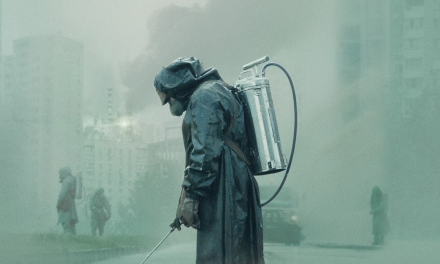The theme for the 2021 Spring Seminar is monstrosity. This theme explores the role of monsters and monstrosity in games, play, game cultures, and other forms of playful media and popular cultures. The figure of the ‘monster’ is a crucial area for development in game studies. Recent scholarship has opened important trajectories for examining how such figures can embed problematic world views (Stang & Trammel 2019; Young 2016), and how the mythic dimensions of the monster are made mundane and knowable through containment within the rules (Švelch 2018). Monsters appear widely across digital and non-digital games and we welcome work that considers how they are deployed in game design and world-building, as well as critical analysis of specific monsters or games.
We are also interested in work that explores the theme of monstrosity more broadly. ‘Monstrosity’ evokes a taste-based or even ethical judgment, traditionally regarding architecture. What constitutes a monstrosity in the context of games and game cultures? What edifices, institutions, and monuments blight this domain? Are there elements of gaming culture and games that are indelibly evil? In some cases, the figure of the ‘gamer’ has become monstrous (e.g. Consalvo 2003), the commercial gaming culture’s role in enforcing racialised and gendered structures and practices is widely acknowledged (e.g. Richard & Gray 2018), while widespread industry practices such as ‘crunch-time’ are routinely condemned (e.g. Dyer-Withefor & de Peuter 2006).
We plan to bring together scholars from a variety of disciplines and perspectives to explore the theme of monstrosity. We are particularly interested in how this theme intersects with feminist scholarship, disability studies, gender studies, indigenous studies, queer studies and critical race/whiteness studies, and scholars who are working in these areas are encouraged to apply.
The possible list of topics includes but is not limited to:
- Monsters and the monstrous in playful media and popular cultures
- Panic discourses on gaming in mainstream media
- Harassment in gaming, social media, and streaming platforms
- Precariousness of work in the game industry
- Destructive capitalist and neoliberal structures and practices in gaming
- Gaming controversies
- Censorship, violence and pornography in games
- Toxicity in competitive gaming and esports
- Monstrosity as a playful practice
- Racism, misogyny, homophobia, transphobia and hostility towards marginalised groups in gaming
Monstrosity is the 17th annual spring seminar organised by Tampere University Game Research Lab. The seminar emphasises work-in-progress submissions, and we strongly encourage submitting late-breaking results, working papers, as well as submissions from graduate and PhD students. The purpose of the seminar is to have peer-to-peer discussions and thereby provide support in refining and improving research work in this area. The seminar is organised in collaboration with the Centre of Excellence in Game Culture Studies.
The papers to be presented will be chosen based on extended abstract review. Full papers are distributed prior to the event to all participants, in order to facilitate discussion. Three invited expert commentators, Dr. Aino-Kaisa Koistinen (University of Jyväskylä, Finland), Doctoral Candidate Sarah Stang (York University, Canada), and Dr. Jaroslav Švelch (Charles University, Prague), will provide feedback on the papers.
The seminar is looking into partnering with a journal so that the best papers would be invited to be further developed for publication in a special journal issue. In the past, we have collaborated with Games and Culture, Simulation & Gaming, International Journal of Role-Playing, and ToDiGRA journals.
Due to the ongoing COVID-19 pandemic, the seminar will be held online. The seminar is free of charge.
Submission guidelines
The papers will be selected for presentation based on extended abstracts of 500–1000 words (plus references). Abstracts should be delivered in PDF format. Please use 12 pt Times New Roman, double-spaced, for your text. Full paper guidelines will be provided with the notification of acceptance.
Our aim is that all participants can familiarise themselves with the papers in advance. Therefore, the maximum length for a full paper is 5000 words (plus references). The seminar presentations should encourage discussion, instead of repeating the information presented in the papers. Every paper will be presented for 10 minutes and discussed for 20 minutes.
Submissions should be sent to gamestudiesseminar@gmail.com.
Important dates
- Abstract deadline: 15 January 2021
- Notification of acceptance: 29 January 2021
- Full Paper deadline: 30 March 2021
- Seminar dates: 20–22 April 2021
References
Mia Consalvo 2003. The Monsters Next Door: Media Constructions of Boys and Masculinity. Feminist Media Studies 3(1): 27-45.
Gabriela T. Richard and Kishonna L. Gray 2018. Gendered Play, Racialized Reality: Black Cyberfeminism, Inclusive Communities of Practice, and the Intersections of Learning, Socialization, and Resilience in Online Gaming. Frontiers: A Journal of Women Studies 39(1): 112-148.
Sarah Stang and Aaron Trammell 2020. The Ludic Bestiary: Misogynistic Tropes of Female Monstrosity in Dungeons & Dragons. Games and Culture 15(6): 730-747.
Jaroslav Švelch 2018. Encoding monsters: “Ontology of the enemy” and containment of the unknown in role-playing games. In the edited proceedings of The Philosophy of Computer Games Conference, Copenhagen 2018. http://gameconference.itu.dk/papers/09%20-%20svelch%20-%20encoding%20monsters.pdf
Nick Dyer-Witheford and Grieg de Peuter 2006. “EA Spouse” and the Crisis of Video Game Labour: Enjoyment, Exclusion, Exploitation, and Exodus. Canadian Journal of Communication 31(3).
Helen Young 2016. Racial Logics, Franchising, and Video Game Genres: The Lord of the Rings. Games and Culture 11(4): 343-364.




